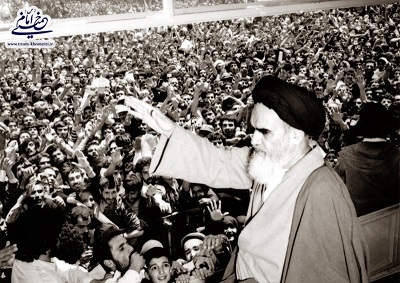- News code: 1353045
- Source: en.imam-khomeini.ir
In any revolution, the leadership plays a crucial role by inspiring and guiding the fight to assert and realize the revolutionary goals. The existence of a charismatic personality who leads the revolutionary masses and rallies their aspirations is very important in order to win support for the revolution.
Imam Khomeini's religious wisdom, his political vision of the necessity of a change in Iran, his firm rejection to the Shah´s regime, his exceptional personal integrity and courage in the face of dangers and threats and his communication skills turned him into the natural leader of the Iranian revolutionary movement.
Imam Khomeini led Iranian people to a complete revolution. He rejected calls to negotiate with a regime, which was seen as an example of tyranny and corruption and a puppet of some foreign powers. In 1963, after he was released from prison, he rejected any compromise with Pahlavi´s dictatorship. He had a clear goal: putting an end not only to the Shah´s regime but also to the monarchic system on the whole and the country´s submission to the United States and other Western powers.
Imam Khomeini was able to mobilize the Iranian people by using alternative tools of communication to elude the censorship imposed by the regime. As he did not have any access to Iranian media, Imam Khomeini utilised audiotapes, which were later copied and distributed all over Iran. His messages were also transcribed and photocopied. The force of this language was that it had been designed to reach out to wide parts of the society and especially the revolutionary forces.
On the other hand, the major role of Islam and the Iranian people´s strong commitment to the religious values made the Islamic revolution completely exceptional, when compared to the French, Russian or other revolutions. In other words, the role of Islam, strong willingness for change, and a wise leadership, helped the Islamic Revolution to win in 1979. Later, Imam Khomeini also promoted the creation of new political, judicial, economic and cultural institutions that served not just a tiny class of rich and powerful but also the whole of the Iranian people.
Read more:
Imam Khomeini monitored revolution struggle, foiled all plots by Shah regime

